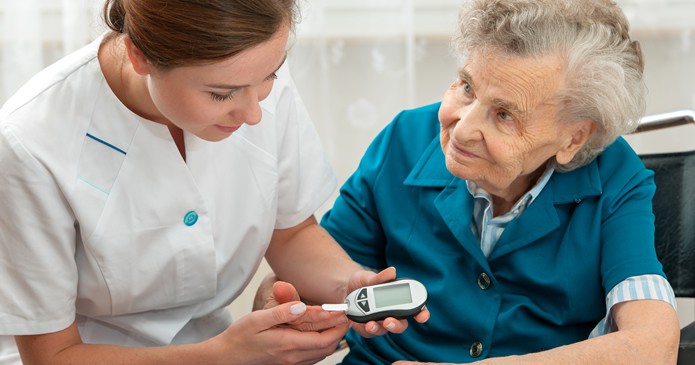Living in the era of pandemic, getting to know about some other rising health concerns is already overwhelming. In the 21st century, Diabetes is hailed as a silent killer threatening the lives of millions of people every year. The burden of diabetes in India is currently above 76 million and increasing rapidly day by day due to several triggering factors such as a sedentary lifestyle and consumption of high-calorie unhealthy food.
Even in the last few decades, diabetes care has advanced bringing several novel medications to regulate blood sugar levels and devices to monitor glucose and insulin levels continuously. Still, there is a large part of the society where basic diabetes care facilities aren’t available to the patients. Drawing attention to this crisis, the theme “access to diabetes care” is actively revolving for providing support to manage their condition and avoid complications.
What is ‘Diabetes Care’?
One of the complicated diseases, Diabetes affects almost the entire body if it remains in an uncontrolled state. From creating several issues with your blood vessels and heart to increased risk of eye conditions or sending telltale signs of kidney failure and frequent infections and so on. However, keeping things under your control and pushing such complications away from you isn’t unachievable. Our experts have shared some important tips to regulate sugar levels and lead a healthy life. Here is what you should do:
- Managing blood pressure and cholesterol by not stressing too much and taking your prescribed medications on time.
- Try to remain active throughout your day including 30 mins walk, exercise, or yoga
- Pay attention to unusual symptoms, swelling in legs/ ankles, skin darkening, urine infections, etc.
- Follow a healthy diet– restricting high-calorie or carbohydrates in your diet. Prefer to take home-cooked meals as possible. I
- If detected diabetes, never miss taking insulin, or oral medications and monitor your blood sugar daily.
- Visit your ophthalmologist at least once every year.
- Refrain excessive alcohol intake and regular smoking.
- Keep your sleeping schedule intact
- Take your oral health seriously as diabetes can affect your gum and teeth health.
Regular exercise and dietary modification will help prevent diabetes to a large extent. Promoting the idea of engaging in physical activity is so important these days, especially since people are spending long hours sitting in front of desks.
Factors Critical for Diabetes Care:
- A century has passed since the discovery of insulin, yet people don’t have equal access to it.
- Essentials required for diabetes care, like medications remain inapproachable to the patients either due to lack of proper knowledge or financial constraints.
- Availability of monitoring blood glucose levels at home is finally out, but people are unable to access the necessary equipment and can’t keep a track of it.
- Inadequate knowledge and psychological support restrain people from getting quality treatment fighting diabetes.
- Along with that, the absence of a nutritional diet and regular exercise restrict people from leading an active lifestyle.
Why access to diabetes care is so important?
In a developing country like India, there is indeed accessibility to the required quality medication and support of healthcare professionals but the possibility of reaching out to every stratum of society is still a question! It’s not a matter of one country, there are many low and middle-income countries where acquiring affordable medication isn’t accessible to people dealing with diabetes. In such a worrisome situation, developing cold chain transportation is absolutely necessary, especially for maintaining an adequate supply of insulin. Secondly, education for regular testing is a must. Many people do not have any idea that they have diabetes or experiencing pre-diabetes due to a lack of interest in annual check-ups.
In critical phases of the COVID-19 pandemic, we have seen an increased risk of complications in patients suffering from undetected or untreated diabetes. Apparently many young people have been diagnosed with diabetes afterward that brings increases the need of making blood sugar tests accessible to all who are expected to be at risk.
Despite the reasonable diabetes care, making use of proper medical facilities might still remain an issue as it is not accompanied by the right information. Accessibility to the right information is as necessary as care, otherwise, it’s more of a threat to one’s health. Diabetes is a life-altering health condition and by all means, we need to deliver ethical information to patients governed by healthcare authorities.



Recent Comments